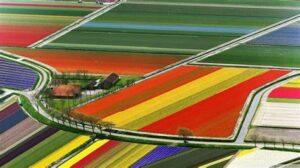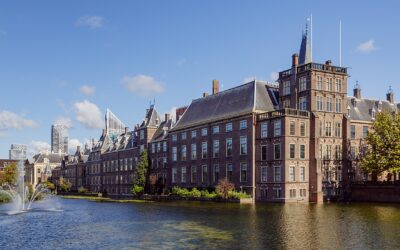
The Dutch economy is deeply intertwined with the rest of the world. A significant portion of the country’s prosperity stems from international trade, cooperation, and investments by foreign companies establishing themselves in the Netherlands. Currently, over 17,500 foreign companies operate in the Netherlands, collectively providing approximately 1.2 million direct and more than half a million indirect jobs. These investments not only generate employment but also enhance the country’s innovative capacity and international networks.
Foreign companies contribute to solutions for societal challenges and strengthen the competitiveness of Dutch ecosystems. Through technological innovations and knowledge exchange, they help advance sectors such as sustainability, digitalization, and healthcare. In this way, these companies play a crucial role in the long-term economic growth of the Netherlands.
Challenges to the Business Climate
The Dutch business and investment climate has faced increasing pressure in recent years due to geopolitical uncertainties, budget cuts, and growing competition from other European countries. This necessitates a more strategic approach to selecting which companies to attract. Selective acquisition requires more time and effort but yields greater economic benefits in the long run.
As a nationwide network which plays a crucial role in foreign investments, the Invest in Holland network is well-positioned to convert international business opportunities into economic benefits for the Netherlands. This is achieved through a strategy built on four pillars:
- Acquisition: Attracting innovative companies in sectors where the Netherlands already excels or aims to develop further, such as agrifood, sustainable energy, maritime manufacturing, and healthcare.
- Investor Relations: Supporting already established foreign companies to encourage continued investment and collaboration within the Netherlands.
- Business Climate: Monitoring and improving the Netherlands‘ competitive position as a business location.
- Collaboration: Strengthening cooperation among national and regional partners to share knowledge and execute joint strategies.
Sector-Focused Approach and New Investment Areas – 2025 update
The Dutch acquisition strategy prioritizes sectors where the Netherlands has a strong position or seeks to expand its presence. While traditional industries like agrifood, semiconductors, and sustainable energy remain key, emerging sectors such as defence, critical raw materials, and regenerative medicine are also being explored. These sectors are strategically important for the country’s future economic autonomy.
By focusing on strategic sectors, the Netherlands not only attracts new investments but also supports existing companies in their continued growth. This is facilitated through the joint Investor Relations program, which aims to better integrate foreign businesses into the Dutch economy. Strengthening regional ecosystems in this manner contributes to stable and sustainable economic growth.
Challenges and International Competition
The global trade environment is becoming increasingly complex. There is a growing trend toward protectionism and national interests, which complicates free trade. This uncertainty makes businesses more cautious about foreign investments, requiring extra effort to maintain the Netherlands as an attractive business destination.
Europe is under considerable pressure in the global competition for innovative companies and talent, particularly in strategic sectors such as energy, healthcare, and security. To address this, the Dutch government has set the goal for all provinces to rank among the top 30 most competitive regions in the EU by 2030, with six provinces aiming for a top 10 position. The Invest in Holland network plays a crucial role in achieving this by attracting companies that drive innovation and economic growth.
Future Strategy: Investing in Strategic Priorities
For many years, the Netherlands actively attracted businesses from around the world. This approach was successful, but changing global conditions now require a more targeted strategy. The focus has shifted to companies that truly add value, whether by strengthening the country’s innovation position or enhancing strategic autonomy in fields such as healthcare, defence, and energy.
The new strategy of Invest in Holland network emphasizes that foreign investments should not only create jobs but also contribute to the broader prosperity and sustainability of the Netherlands. This marks a shift from acquisition based on quantity to a focus on investments with high added value.
Collaborating for a Stronger Economy
The Netherlands boasts a strong business sector, world-class knowledge institutions, and a unique culture of collaboration between government, businesses, and research institutions. This ecosystem provides a competitive advantage that must be leveraged in the global competition for innovative companies and talent.
Foreign investments remain a crucial pillar of the Dutch economy. They not only generate employment and innovation but also strengthen the country’s strategic position within Europe and the world. By focusing on high-value investments, the Netherlands can remain competitive and build a resilient and future-proof economy.
Effectively implementing this strategy is essential to maintaining the country’s competitive edge. By making smart choices and fostering collaboration, the Netherlands can turn today’s global challenges into opportunities for tomorrow.
References
Invest in Holland – NFIA. (2024). Invest in Holland Strategie 2025-2030. Invest in Holland.
Photo:
https://th.bing.com/th/id/OIP.mR-dxDZnuD0SRz7tB2TjfgHaEK?rs=1&pid=ImgDetMain



